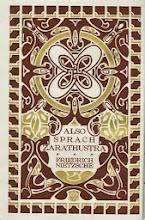I Couldn't Agree More
This is exactly what I was trying to say in my justice, love and unity article, but it is said much better by Frithjof Schuon in his book the Transcendent Unity of Religion. I'll let the master speak for himself.
“Another question that needs elucidating before we proceed any further concerns the idea of the universality of religion. This idea, being still of a more or less outward order, is clouded over by all sorts of historical and geographical contingencies, so much so that certain people freely doubt its existence…The truth is, however, that every religious form is superior to others in a particular respect, and it is this characteristic that in fact indicates the sufficient reason for the existence of that form (italics mine). Anyone who speaks in the name of his religion always has this characteristic in mind…this point of view finds its prototype in the Koran itself; in one place the Koran says that all the Prophets are equal, while elsewhere it declares that some are superior to others. This means, according the commentary of Ibn Arabi, that each Prophet is superior to the others by reason of a particularity that is peculiar to him (italics mine)…The fact that Islam constitutes the last form of the Sanatana Dharma in this maha-yuga, to use Hindu terms, implies that this form possesses a certain contingent superiority over preceding forms; similarly, the fact that Hinduism is the most ancient of the living religious forms implies that it possesses a certain superiority or centrality with respect to later forms. There is not, of course, any contradiction here, since the standpoint is different in the two cases. In the same way, the fact that St. Bernard preached the Crusades and that he was probably ignorant of the real nature of Islam is in no wise inconsistent with his esoteric knowledge. The question is not whether St. Bernard did or did not understand Islam but whether he would have understood it had he enjoyed direct and regular contacts with this form of Revelation, in the same manner. (Schuon 35-37)”
This is a good review of the book that I found that I thought I should include here as well, click on the link above if you want to learn more.
"The religions are different and serve different purposes at the worldly [exoteric] level..it is only when their esoteric reality is realized does the unity become apparent. What he is saying is that reality is multi-leveled and some things contradict each other [like religion] at a certain level, but when a person comprehends a higher level of reality the contradictions become reconciled. As with all Schuons books...there are too many spiritual assumptions taken for granted, for those without a deep understanding of religon, this book will be incomprehensible...its a guidebook for the religous scholar or esoteric practitioner, not the layman."

